Evaluating Country Programmes - OECD Online Bookshop
Evaluating Country Programmes - OECD Online Bookshop
Evaluating Country Programmes - OECD Online Bookshop
You also want an ePaper? Increase the reach of your titles
YUMPU automatically turns print PDFs into web optimized ePapers that Google loves.
<strong>Evaluating</strong> <strong>Country</strong> <strong>Programmes</strong><br />
140<br />
philosophies for change. To this effect, evaluation results of past programmes and<br />
planned evaluation events for ongoing ones are essential instruments to bring<br />
about the required changes in development co-operation which call for the host<br />
countries and citizens to own the entire development process and also be accountable<br />
for the results. These changes, however, can only be established if there is<br />
adequate participation of local partners at all stages of the programme, i.e. from<br />
design to evaluation.<br />
Why local partners’ involvement in CPEs?<br />
A participatory country programme evaluation process would enhance the following<br />
aspects, which are of crucial importance in a partnership development process:<br />
– Understanding of relationships between donor countries and host governments<br />
in terms of development policies and agendas of each party. Donors’<br />
needs and requirements for accountability and professional standards need<br />
to be discussed with actors, and consensus achieved.<br />
– Understanding of the relationship between the host government and its<br />
civil society in terms of governance, which includes issues pertaining to<br />
accountability of a specific government to its citizens as expressed by its<br />
political system, decision-making processes (i.e. whose opinion counts<br />
most?), accountability lines, application of the rule of law, etc.<br />
– Understanding of values and expectations of stakeholders in development<br />
partnership, i.e. host governments, civil society and donors. In essence, the<br />
limitations prevailing within partner country set-ups, and options available<br />
for further development, would be discussed as a basis for setting realistic<br />
expectations among partners. The discussion would result into self-searching<br />
questions, such as: Can we (donors) meet such expectations based on prevailing policies<br />
in our countries? What are the bottom lines beyond which we cannot compromise? Has<br />
previous development support created a meaningful positive impact on the well-being of local<br />
people? Would there be a sound justification for us to continue in this form of partnership?<br />
How many resources can we commit to the coming programme given the known limitations<br />
which may impact on results?, etc. Such questions are vital as they determine the<br />
level of partnership into which parties should commit themselves.<br />
– An understanding of the key reasons behind past achievements or failures<br />
and creation of a common vision for the future, i.e. capitalising on the past<br />
to improve the future.<br />
– Enhanced openness, transparency and trust among partners.<br />
– Design of future programmes which match local priorities.<br />
– Local acceptance of programmes (ownership) for sustainable development.<br />
<strong>OECD</strong> 1999






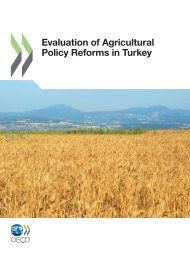
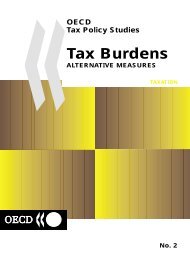
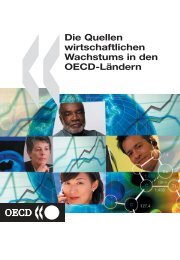
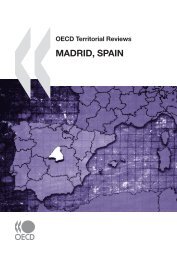



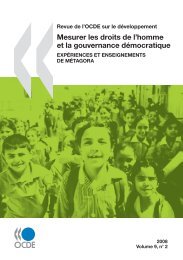
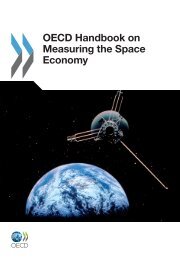
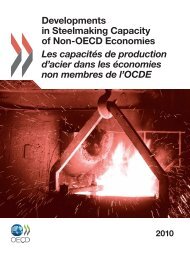
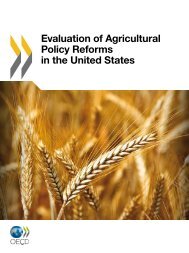
![CQE=U]^\]Z: KAZAKHSTAN - OECD Online Bookshop](https://img.yumpu.com/3915768/1/190x253/cqeuz-kazakhstan-oecd-online-bookshop.jpg?quality=85)